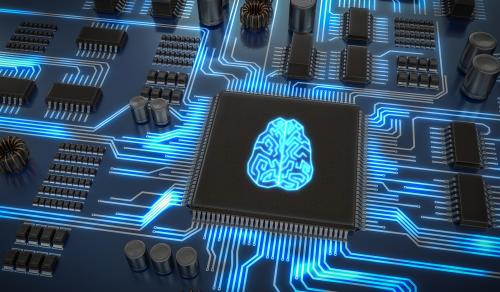AI chips in smartphones; a good reason to upgrade

Artificial
intelligence has been a continuous source of hype since the advent of the 21st
century. It is gradually making its way into every single sphere of life,
offering an array of benefits to mankind.
The smartphone
industry is among the pioneers in adopting AI technology for their chipsets in
recent years. Major technological giants like Samsung, Apple, Huawei, and
Google have repeatedly mentioned the use of AI to streamline their operations
and to enhance the functionality of their smartphones. Huawei recently
announced their Mate 10 Lite and p20 Pro, and during the launch ceremonies the
executives repeatedly used the phrase “AI enhancing our phones.” What does that
mean, and how is that beneficial?
Let us consider how
AI chips can help improve the functionality of smartphones, and if the newer AI
chipsets are worth upgrading to.
How AI Works
We have seen how
Facebook is able to identify our faces in various pictures, and how it gives us
suggestions to tag ourselves or our friends in those pictures. That is the AI
working for you. It maps an image of your face and scans thousands of photos
every second to check for similar features available over their servers. This
is just one way how smart AI is able to assist you. AI incorporates machine
learning with real time data to enhance the user experience. That’s how Siri
and Bixby are able to translate what we speak in to a text message.
Recent Examples from the Industry
Smartphone
processor manufacturers are incorporating similar AI in their smart chips to
enhance the user experience and to increase the efficiency of their
processors. Apple has named its AI chip
as the “neural engine” which has been installed in their latest A11 chip. It
carries out extensive learning through various AI techniques in order to
enhance your experience and to reduce the processing tasks for the processor
chip so it could be used elsewhere. These learning techniques include facial
recognition, voice recognition, and forming the perfect Animoji, to name a few.
Recently, Mark
Zuckerberg came under a lot of pressure, and had to answer questions from
the Senate for ten hours. He repeatedly referred to the AI which can help in
filtering our fake news and information so that related future catastrophes can
be avoided.
Ways in Which AI Assists
As a number of tech
giants have already demonstrated through their AI installed smartphones, recent
developments help translate languages and signs, provide detailed analysis of
objects and locations identified through pictures, and direct you to where to
buy various objects scanned through the mobile camera. These are just a few of
the features where AI is helping customers by providing assistance. Advanced AI
chips personalize your smartphone by learning how you use it and which
applications you frequently use so they can be optimized for better
performance.
Project Trillium - Exploring New
Horizons
Project Trillium
developed by Arm is gaining massive popularity since its introduction. It
comprises of state-of-the-art AI chips which are specifically developed for
better machine learning and neural networking, and which will be incorporated
in various smart home devices. These processors are able to perform trillions
of AI operations in mere seconds, which is quite impressive. This functionality
will undoubtedly spread to smartphones and other related industries, which
would undoubtedly make our smartphones much more capable.
Home Security and AI
The home
security industry is also benefiting from smart AI developments. Smart
homes can be incorporated with personal assistants like Google Home or Amazon
Echo, which can also help you operate your home security features. Wireless
home security cameras can be operated with simple voice commands to
start/stop recording sequences even when you’re on-the-go. These smart
assistants not only save your profile, they enhance and upgrade the experience
with continuous in-depth learning of the activities and routines of various
household members.
Conclusion
AI technology could potentially make the handling of enormous amounts of data much easier and efficient. We know that a number of software packages like Adobe Photoshop can eat up a lot of your processing power to complete tasks such as image rendering. For optimal performance, AI chips will be able handle a number of tasks on their own, thus reducing the workload on the processor, and making the computers perform better. With the continuous advancements in AI, we might see mobile devices such as smartphones being able to manage these software packages on their own.
Post Your Ad Here
Comments